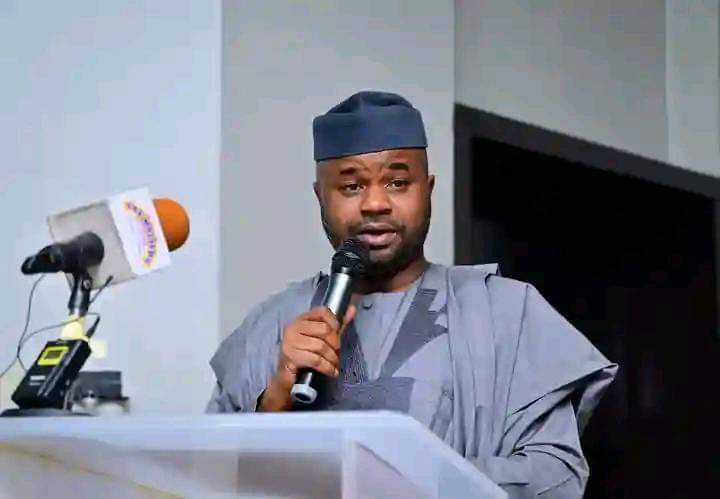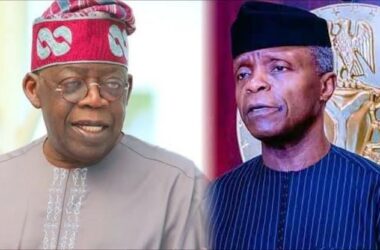Tax, it seems, is one subject on which the majority of people on earth – and especially those who HAVE to pay it – are in agreement: NOBODY LIKES IT. Most of us would rather NOT pay tax if we can safely avoid doing so.
And yet, like a visit to the dentist when you have a severe toothache, it is an absolute necessity, even though you don’t relish it in the least. It is the proverbial two-edged sword. Indeed, this dual attribute of taxation – as a necessary evil – is best exemplified by the following pair of famous quotes on the subject. On the positive side, it was the American historian, Albert Bushnell Hart who said, “Taxation is the price which civilized communities pay for the opportunity of REMAINING civilized.” And on the negative side, the great American writer and wit, Mark Twain, had this to say, “A fine is a tax for doing wrong, and a tax is a fine for doing well. “
In light of this, agencies whose mandate is to collect tax, or otherwise mobilize revenues from the hard-earned incomes of the citizens or corporate entities in a community, a city or a nation, can not possibly win any popularity contests. However, their success in performing precisely that mandate has a salutary impact on the fortunes of that community, city or nation. Taxes, after all, remain the most sustainable and reliable source of public revenue of any modern state. According to recent estimates from influential bodies such as the International Center for Tax and Development, tax revenues account for more than 80% of total government revenue in about half of the countries of the world, and more than 50% in almost every country.
That is the paradox in which the Federal Inland Revenue Service (FIRS) finds itself as it strives to maximize the opportunities – and mitigate the many challenges – of the tax and revenue mobilisation ecosystem in Nigeria. The FIRS, which traces its origins as far back as 1943 under such previous designations as the Inland Revenue Department of British West Africa and the Board of Inland Revenue, etc, is the agency responsible for assessing, collecting and accounting for tax and other revenues accruing to the Federal Government of Nigeria. In its present form, the work of the FIRS gained impetus as recently as 2003, when the Federal Government of Nigeria recognized that poor service delivery in the public sector – including revenue management – had become an urgent national issue, and undertook a series of steps that led to the entering into a Service Compact (SERVICOM) with all Nigerians. In the spirit of SERVICOM, the FIRS created a unit in 2014 to institutionalize service delivery in its area of competence. This unit has undergone various transformations to meet the tempo of ever-changing FIRS organizational reforms and the needs of the taxpaying public and stakeholders. Thanks to a plethora of reforms and initiatives, the FIRS has proven very effective in carrying out its core mandate, namely:
– timely provision and publication of accurate data and annual reports to the Federal Government of Nigeria and other stakeholders to inform national economic planning, academic research, tax policy and development legislation;
– timely provision of tax advisory services, rulings, guidance notes and clarifications on request and to the public in general;
– regular investigation, enforcement and prosecution of tax defaulters as provided by the law;
– issuance of “Taxpayer Identifcation Numbers” (TIN) at no cost to the taxpayer;
– prompt processing of payment claims and tax refund requests received, within stated timeframes;
– undertaking appropriate actions to reduce the arrears position of the service and minimize debt profile;
– regular and accurate reconciliation of taxes received into Federation, Consolidated and VAT, as the case may be; and
– provision of tax education and information to taxpayers through diverse channels and languages.
Working to fulfill the above mandate may seem like a rather dry, unexciting undertaking (much like everything pertaining to tax, economics and finance in the public imagination) but the experience of many tax and revenue specialists over the years does not bear this out; on the contrary, it does call for some level of intellectual dexterity and even creativity. This is even more so when you consider the challenges associated with the low level of tax compliance in Nigeria, and when you find yourself in the position of having to make the case for further collaboration between taxpayers and government at various levels in order to raise tax revenue and support the economy.
In Nigeria, the search for a sustainable source of public finance in the wake of dwindling revenues from oil has brought taxation, and especially the role of the FIRS (and its sister agencies at state level) to the forefront of public attention. Unfortunately, no thanks to low tax compliance, government has had to resort to debt as a way of financing the country’s annual budgets – a practice which even bodies such as the International Monetary Fund (IMF) – itself a global lender – has described as clearly unsustainable.
It is such dexterity, coupled with a profound financial and managerial acumen, that Zacchaeus Adedeji, PhD, brings to the workings of the FIRS at this time in the life of the agebcy – and at this critical juncture in Nigeria’s economic trajectory. A well-trained tax, accounting and management professional and a public finance development expert, Zacch (as his frienss call him) is the current Executive Chairman of the FIRS – a position to which he was first appointed in an acting capacity by President Bola Ahmed Tinubu, who tasked him with a mandate to provide strategic leadership, foster a culture of excellence, collaborate on fiscal policies with other relevant MDAs of the government as well as the private sector, and enhance revenue collection.
With Adedeji’s appointment to the Chair of the FIRS, the President has further burnished his longstanding reputation as an astute head-hunter with an instinctive eye for top talent. That is certainly the case with the new FIRS chief, considering that Adedeji is considered among his peers as something of an accountancy and financial guru (or whiz kid, if you like). A first-class graduate in accounting from the Obafemi Awolowo University, Ile-Ife, he boasts almost two decades of experience in corporate accounting, public service administration and advisory.
Indeed, his entire career, right from his early years, has been a showcase of unparalleled virtuosity and outstanding accomplishment in his chosen career. Born in January 1978 in the town of Iwo-Ate in Ogo-Oluwa LGA of Oyo State, Nigeria (to a family that is deeply rooted in the cocoa trade) the 46-year old Adedeji obtained his education at the Federal Polytechnic, Ede (in what is now Osun State of Nigeria), from which he received a National Diploma in Accounting. He then attended the aforementioned Obafemi Awolowo University, Ile-Ife, where he bagged a Bachelor of Science (First Class) in Accounting. After his undergraduate programme, he went on to obtain a Master of Science degree in Accounting, also from the OAU. He recently bagged a doctorate degree from that University as well. He is also an alumnus of the prestigious Harvard Kennedy School of Government in the United States, where he attended an Executive Course in Economic Development.
His illustrious work life includes stints at such reputable multinational organizations as Procter & Gamble, where he held a managerial position. At the age of 33, he was appointed Commissioner for Finance in Oyo State by the state’s late former Governor, Sen. Abiola Ajimobi; he was the youngest person ever to hold such a postion in that state. In that capacity, he famously led the team that instituted a medium-term financial strategy for the overall framework of financial and budgetary management in the Pacesetter State. In recognition of his expertise in corporate tax and public finance development, Adedeji was appointed the Executive Secretary of the National Sugar Development Council. On the advent of the Tinubu Presidency, he served briefly as the Special Adviser (Revenue) to the President – before his present appointment at the helm of the FIRS.
An astute entrepreneur, Adedeji co-founded RTR, a financial consulting firm specializing in providing financial advisory and policy development services to public administrators and private institutions across West Africa.
Under Adedeji, the FIRS has its work cut out for it – in view of the unique set of challenges Nigeria’s precarious financial situation have presented to policymakers and other relevant stakeholders. But it is embarking on this arduous assignment with support from the highest quarters – most notably the Presidential Committee on Tax Policy and Fiscal Reforms, whose Chairman, Taiwo Oyedele has been unequivocal in his insistence on the primacy of the FIRS when it comes to the collection and management of revenues due the federal government.
In a recent media engagement, Oyedele – himself a former Fiscal Policy Partner and Africa Tax Leader at PriceWaterhouseCoopers (PwC) – lamented that while Nigeria’s revenue collection from taxes is one of the lowest in the world, the cost of collecting same is unusually high – a situation he blames on the fact that there were too many MDAs (63 at the last count) not just collecting taxes, but trying to meet all manner of revenue targets. Because they were not originally set up to do so, he said, their efforts have over the years been plagued by inefficiency and failure. “…Move all those revenue collection functions to the FIRS”, Oyedele reportedly said. “It has two advantages: the cost of collection and efficiency will improve, these (MDAs) will focus on their work, and the economy will benefit as a result.”
To occupy the pole position envisaged by Oyedele and other influential stakeholders in this important sector of the Nigerian economy, and to fulfill its mandate accordingly, the Federal Inland Revenue Service will need to be nimble on its feet with a combination of efficiency, speed and timeliness of service delivery. With a helmsman like Dr. Zacch Adedeji (a man who has carved an enviable niche for himself, thanks to his capacity for innovation as demonstrated in his previous roles), the agency looks set to tick all the relevant boxes – and in the process transform the Nigerian tax and revenue mobilisation and management ecosystem (and by extension, the country’s economy) for the better.






